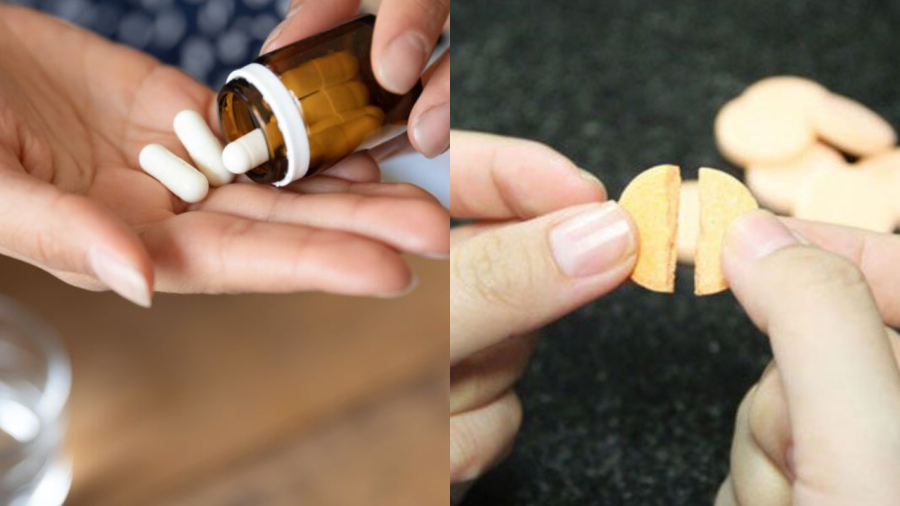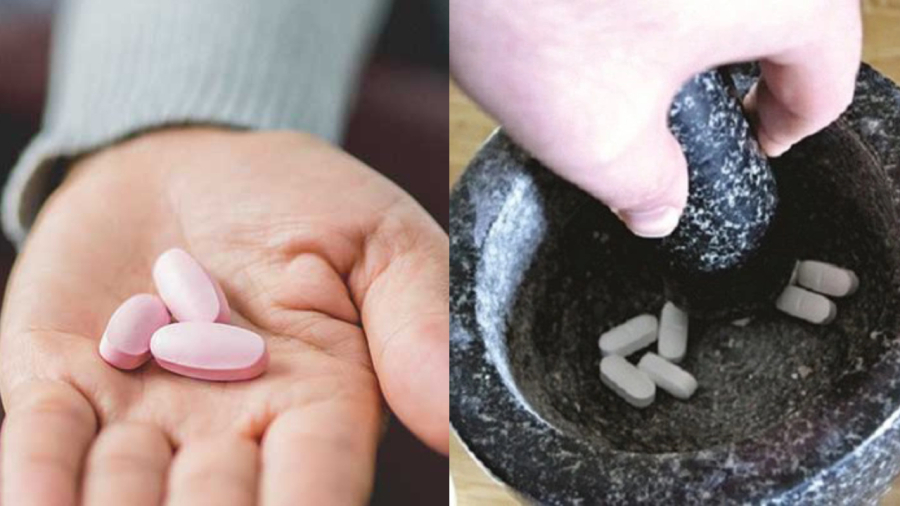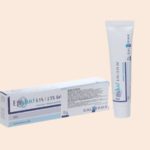Why shouldn’t you crush or grind tablets when taking them?
Tablets and capsules are common forms of medication. Each type of medication has different absorption, dissipation, and active ingredient levels…
Some people have difficulty swallowing tablets and capsules. In this case, many people think of ways to crush tablets, grind them, or open capsules to mix the medication with food or liquid.

However, this can alter the effectiveness of the medication, change the pharmacokinetics, and even cause harmful side effects for the user.
Crushing tablets or grinding them can lead to risks such as overdosing, increased unwanted effects or insufficient dosage; medication being destroyed by gastric acid; irritation and ulceration of the oral or gastric mucosa caused by active ingredients in the medication; medication coming into contact with light or food leading to changes in composition, affecting effectiveness…
Types of medication that should not be crushed, ground, or chewed
– Extended-release tablets
Extended-release tablets are formulated to release the drug at a predetermined rate, maintaining a stable drug concentration for a specific period with minimal side effects.
If these types of medication are crushed or ground before being taken, a large amount of the active ingredient will be rapidly released. This can lead to overdose, increased toxicity, and serious side effects.
Extended-release tablets are commonly used in the treatment of chronic diseases or diseases that require maintaining a stable dosage in the body.

Some examples of extended-release tablets:
+ Metformin diabetes medication: Metformin stada, metformin stella…
+ Blood pressure medication containing the active ingredient nifedipine, such as: Adalat LA, nifedipine T20, nifedipine hasan…
+ Acid reflux medication containing the active ingredient omeprazole: Lomac, losec helizole, omeprazole stada…
For these types of medication, patients need to strictly follow the instructions for use and should not crush or grind the medication to ensure treatment effectiveness and safety.
– Enteric-coated tablets
Enteric-coated tablets are medications with a special coating that does not dissolve in gastric acid. This coating protects the medication from the effects of gastric acid or allows the medication to be released through the stomach. This type of medication usually has “EN” or “EC” at the end of the drug name.
If the enteric coating is lost before the medication enters the digestive system, the active ingredients will be released too early and destroyed by gastric acid, leading to changes in the medication’s effects or causing irritation and damage to the gastric mucosa.
– Sublingual tablets
These types of medication are formulated to release the active ingredient while being placed under the tongue and rapidly absorbed into the bloodstream. If they are swallowed and absorbed through the gastrointestinal tract, the effects may be reduced and delayed compared to proper use. It is necessary to maintain the structure of the tablets and follow the instructions of the prescribing doctor as well as the manufacturer’s instructions.



































